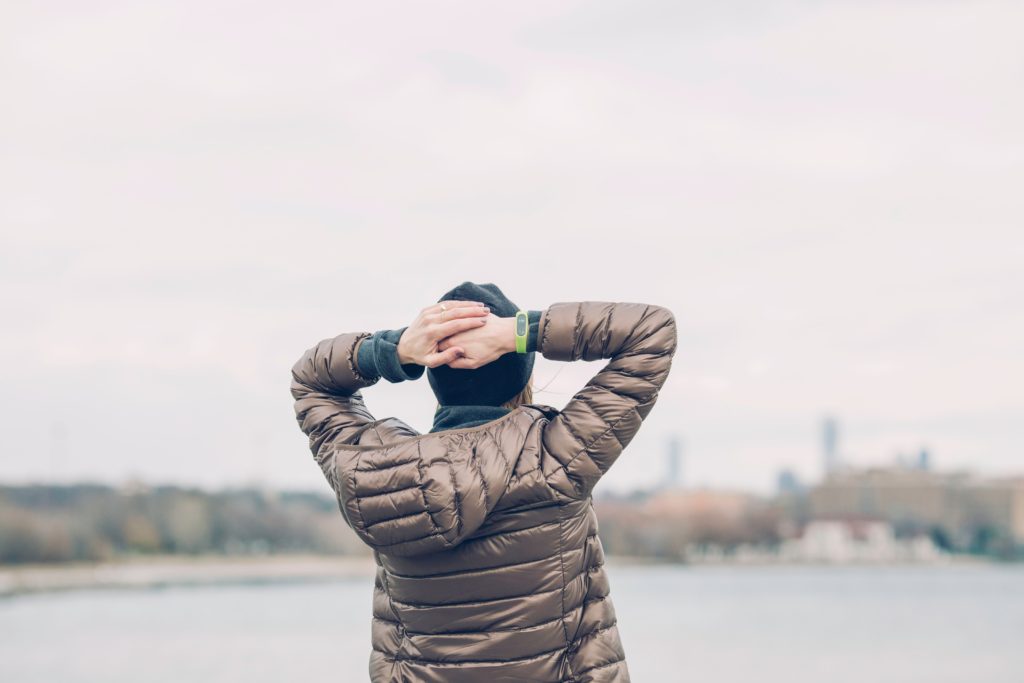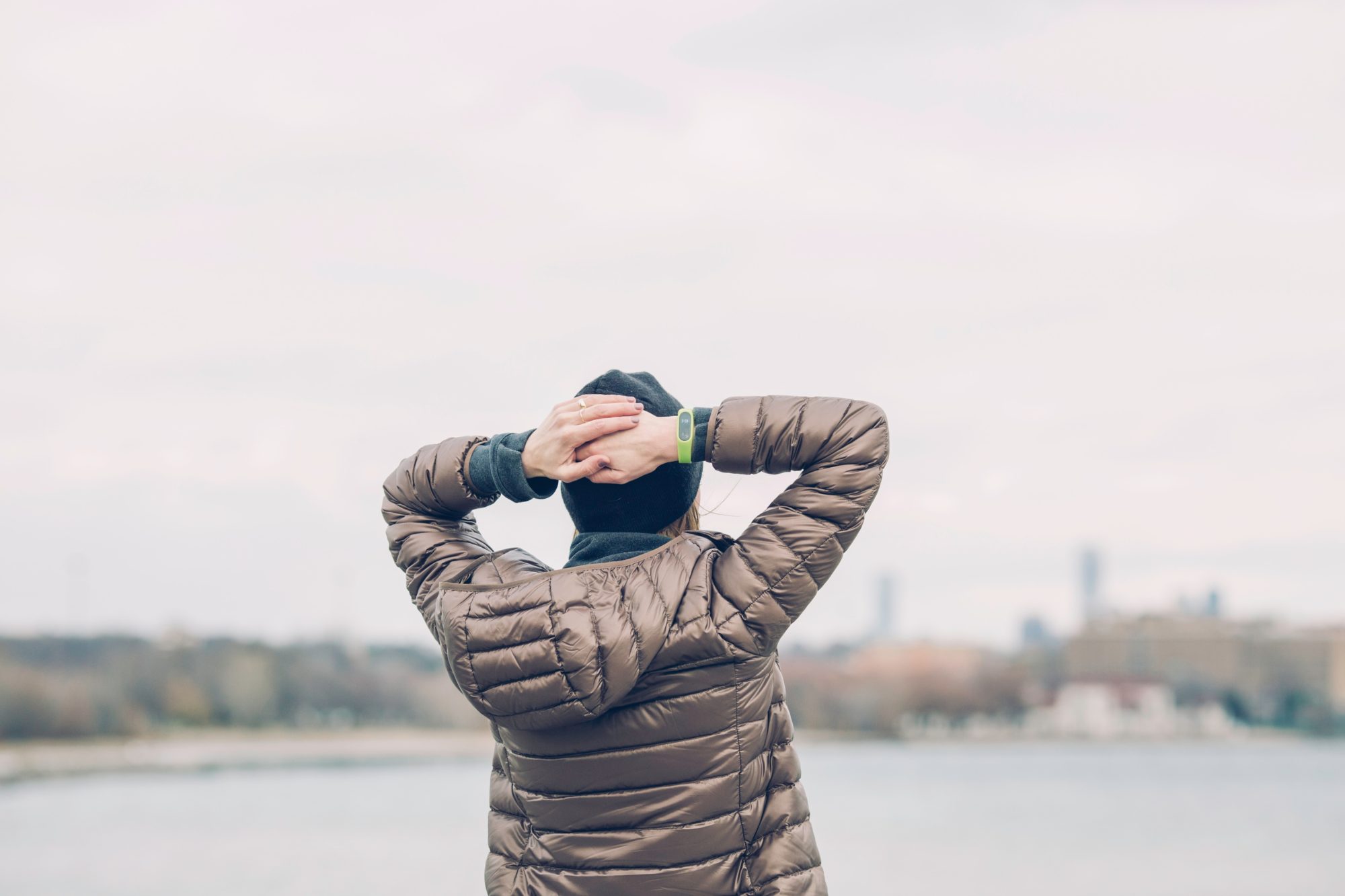
As a yoga teacher and nutritionist, oh if I had a dollar for every time a client, friend or family member told me flat out that they are not stressed or couldn’t possibly have anxiety!
But unfortunately there is no human warning light that switches on or buzzer that sounds when we start to succumb to the effects of excessive stress and anxiety.
We have to read the other signs our body is giving us.
And it’s important to know that the issue isn’t always about the amount of stress we are under, it is about how we cope with that stress which is really individual and personal, and also depends on our general health, our genetics, our past experiences, our present environment plus a number of other things.
Please don’t think that you ‘shouldn’t’ be feeling a certain way because others are coping better than you, or that others have it worse, or that you should be strong enough to cope on your own.
It just isn’t about that and that kind of thinking only leads to more shame, guilt and pressure on ourselves to keep it together.
If you are reading this it’s likely that you are either concerned or aware of your own warning symptoms already, or you are concerned about a loved one.
Either way, see if one or more of these sounds familiar:
- Heart palpitations
- Mild chest pain or feeling like you’re having a heart attack
- Unable to catch a breath, shallow breathing, or sighing often
- Restless or feeling edgy (very common in children with anxiety)
- Regularly avoiding social or confronting situations
- Excessive worrying and ruminating over things that may never happen
- Sweaty palms or shaky hands
- Dry mouth
- Chronic fatigue, always tired, waking up tired
- Irritability, snapping
- Difficulty concentrating
- Constantly tense, tight muscles which may lead to chronic back ache or regular headaches
- Trouble sleeping – either falling asleep or staying asleep
- Compulsive behaviours like nail biting or substance abuse
- Upset stomach, constipation and/or diarrhoea
All of these symptoms may be indicative of anxiety.
So what is anxiety?
Anxiety is a response to perceived threat felt in a number of different ways as outlined in the various symptoms above.
These symptoms are caused by long-term activation of the sympathetic nervous system – our fight or flight response.
The sympathetic nervous system is there for those few dangerous times in our lives where we need to act fast and think on our feet in order to survive.
On a basic physiological level, when our sympathetic nervous system is triggered, for example we are frightened by a loud noise, the following physical things occur in the body:
- Cortisol and adrenaline are released from the adrenal glands near the kidneys and act to increase blood sugar levels (so that we have some immediate energy) and suppress the immune system (to prevent wastage of energy).
- The pupils dilate to let in more light and the airways open up to let in more oxygen.
- We begin to sweat.
- Our heart rate increases and the force of contraction of the heart increases, whilst our blood flow is prioritised to brain, heart, lungs and skeletal muscle.
- Importantly blood flow is directed away from organs that we don’t need for immediate survival like intestines and kidneys.
- The digestive tract stops its natural regular movement, the kidneys recognise the drop in blood flow and release renin which triggers a rise in blood pressure to try to accommodate for their loss of blood.
- Our sexual functions cease. (When we are fighting for our lives, there is no time for food or babies.)
And then as soon as the threat is gone we switch back to the parasympathetic nervous system which restores balance and allows us to ‘rest and digest’, or ‘feed and breed’.
However…
The threats to our survival are no longer big scary animals trying to eat us.
When the sympathetic nervous system is constantly being triggered – by work demands and deadlines, family and personal issues, traumatic experiences, over-stimulating or unnatural environments, poor health, bad diet, toxin exposure, constant financial worry…..
That quick response to increase blood sugar? … becomes hyperglycaemia or chronically high blood glucose levels.
The elevated heart rate and boosted blood pressure? … becomes tachycardia and high blood pressure.
What should be a momentary loss of intestinal movement and a short-term divergence of blood flow away from the digestive system becomes a chronic lack of function and proper blood supply resulting in diarrhoea, constipation, irregularity, bloating and pain – essentially all the symptoms of IBS (irritable bowel syndrome).
I found this very informative diagram that explains the two nervous systems quite well: (Artist unknown)
Ok so I have some of these symptoms, what can I do about it?
- Improve diet and gut health: Removing processed foods and reducing sugar intake can reduce symptoms of anxiety, improve blood sugar and blood pressure, and help to reduce irritability and mood fluctuations. Taking probiotics and eating fermented foods have also been associated with improved mental health. (1)
- Limiting or reducing caffeine and alcohol: Excessive caffeine intake may worsen feelings of anxiety in some people, especially those with anxiety disorders (2) and alcohol abuse is strongly linked to anxiety disorders (3).
- Regular exercise, mindfulness and yoga practice: Mindfulness-based stress reduction has been shown to significantly reduce symptoms in people with anxiety disorders.
Which type of yoga?
Due to the mindfulness, observation and awareness taught in Iyengar yoga, the benefits on stress reduction and anxiety treatment are really interesting.
One study looked at distressed women, and after three months, women in the yoga groups showed significant improvements in perceived stress, anxiety, depression quality of life, mood and bodily complaints when compared to control groups.
‘These findings suggest that Iyengar yoga effectively reduces distress and improves related psychological and physical outcomes.’ 5
Even more precise, some studies have looked into the effects of specific yoga poses and found similar results to what is taught in the Iyengar method as discovered through decades of teaching and practice by its founder BKS Iyengar.
One study showed for example that backbends were associated with the most positive mood changes. In Iyengar yoga backbends are often used to help alleviate symptoms of depression.
From Yoga: The Path to Holistic Health by BKS Iyengar
“Regarding yoga, regular practice is the key to managing anxiety and keeping stress levels in check.
Mere relaxation is not enough to counter the effects of stress on the mind and body.
Yoga recuperates and regenerates our energy, relaxes tight muscles and stimulates cells and organs bringing life back to dull areas of the body.
The impacts of negative stress are reduced, however the benefits of positive stress are seen – calmer more resilient nerves, better hormonal balance, improved muscular strength and more flexibility in our bodies.
“Clarity, firmness of purpose, self-discipline and ethical and moral sensibility follow naturally enabling you to live a tranquil life…”
To find out about our next Beginner’s Yoga course for Stress and Anxiety click here.
References:
- Selhub, Eva M et al. “Fermented foods, microbiota, and mental health: ancient practice meets nutritional psychiatry.” Journal of physiological anthropology vol. 33,1 2. 15 Jan. 2014, doi:10.1186/1880-6805-33-2
- Temple, Jennifer L et al. “The Safety of Ingested Caffeine: A Comprehensive Review.” Frontiers in psychiatry vol. 8 80. 26 May. 2017, doi:10.3389/fpsyt.2017.00080
-
David Shapiro, Ph.D., and Karen Cline, B.A.,Mood Changes Associated with Iyengar Yoga Practices: A Pilot Study”, INTERNATIONAL JOURNAL OF YOGA THERAPY — No. 14 (2004) 35
5. Michalsen, Andreas et al. “Iyengar yoga for distressed women: a 3-armed randomized controlled trial.” Evidence-based complementary and alternative medicine : eCAM vol. 2012 (2012): 408727. doi:10.1155/2012/408727


